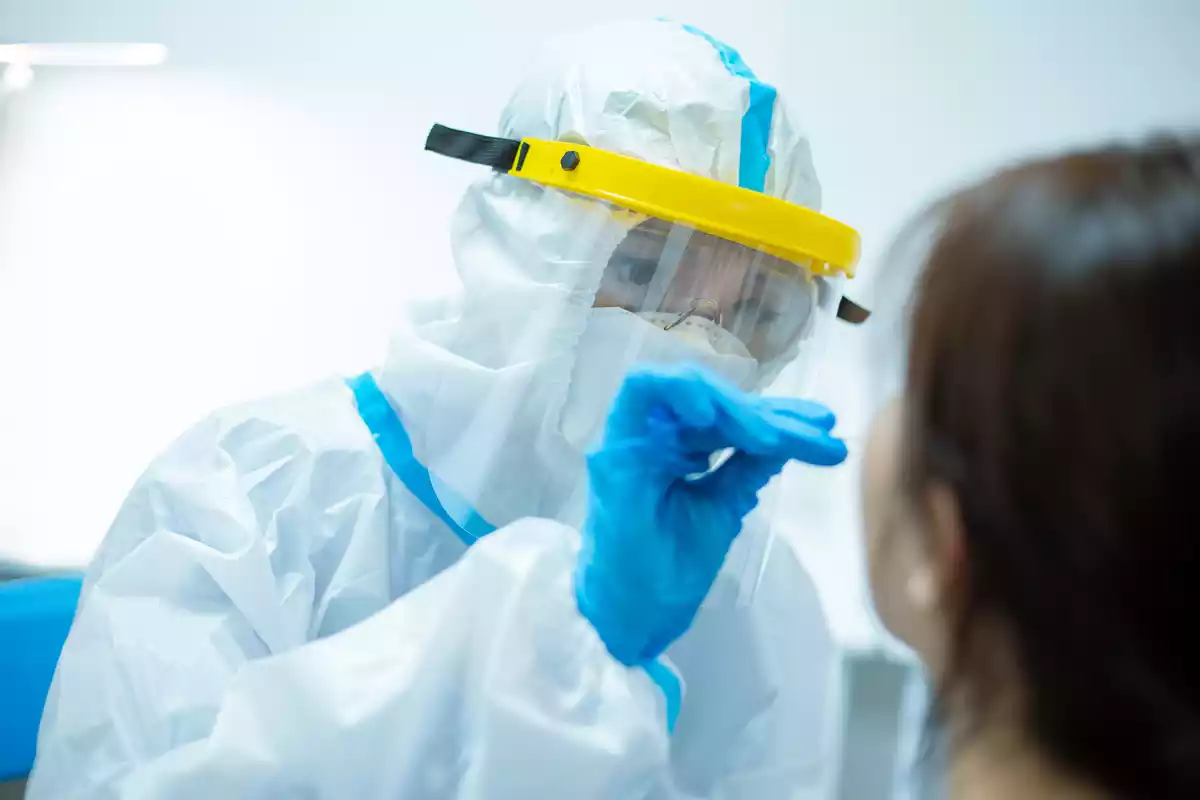
The virus responsible for the global pandemic has found new ways to remain present in society despite the efforts of health authorities to contain it.
It is not news at this stage of the health crisis that the virus has the ability to mutate, become more aggressive and so it gets more difficult for experts to control.
The World Health Organization (WHO) has warned in a new report that another new variant of SARS-CoV-2 has appeared, while they were in the midst of a battle to curb the infection rate caused by the British strain of coronavirus.
"The WHO is investigating it, but we need more information," Maria van Kerkhove, head of the technical team set up for the WHO SARS-CoV-2 investigation, reassured the public via Twitter.
This time, the finding is a hybrid virus that has emerged from the combination of two coronavirus variants. Specifically, the British strain, dubbed B.1.1.7, and the California strain, called B.1.429.
As reported by COVID-19 experts in the report published in New Scientist, the two variants of coronavirus mentioned above have recombined their genomes to create a new hybrid mutated strain between the two SARS-CoV-2 variants.
It was a sample of the virus taken in California that alerted researchers that a hybrid virus had been born and could be the real culprit behind the increase in new positive cases in the city of Los Angeles, as this mutation lends itself to resistance to certain antibodies.
A molecular biologist and virologist at Los Alamos National Laboratory in New Mexico, Bette Korber, said she had found "pretty clear" evidence of such a mixture in her database of viral genomes.
She presented her evidence to the New York Academy of Sciences at a meeting with the latter on February 2.
This hybrid virus discovered could be more resistant and infectious
However, this finding by the virologist and biologist, Korber, has not caught some experts off guard, such as Sergei Pond, from Temple University in Pennsylvania. This scientist assured that "all coronaviruses recombine", so he was not surprised.
Moreover, Pond added that "it is possible that we are getting to the point where this is happening at a significant rate". The scientific basis that a person can be infected with two different variants at the same time, which means that the virus mutates giving rise to new strains, could have laid the foundations for the birth of a hybrid.
In this context, the WHO report states that if the new COVID-19 strain is a recombination of the genomes of two coronavirus variants and, indeed, is confirmed, the scientific community would be facing the first hybrid COVID-19 virus in this health crisis.
Health authorities clarify that the difference between a mutation and a recombination is that, in the latter, multiple mutations occur at once.
Although nothing has yet been proven and there is no substantiated scientific theory, if this is the case, the finding of the biologist Bette Korber has made it clear before the New York Academy of Sciences that we would be facing a much more dangerous virus.
The recombination of the genomes of these two strains "could mean that the virus has mated to a more infectious virus with a more resistant virus", concluded the expert at the meeting with the oldest scientific society in the United States.
[This is a translation of the original article "La OMS, pendiente de un virus que lo cambiaría todo: 'Lo estamos investigando'" published in espanadiario.net]

